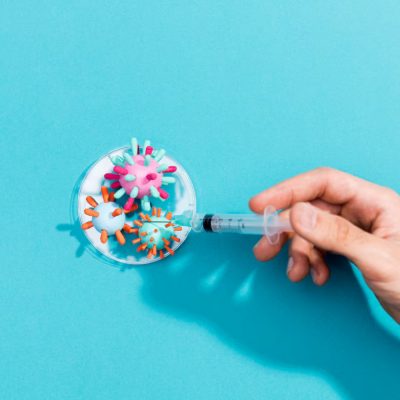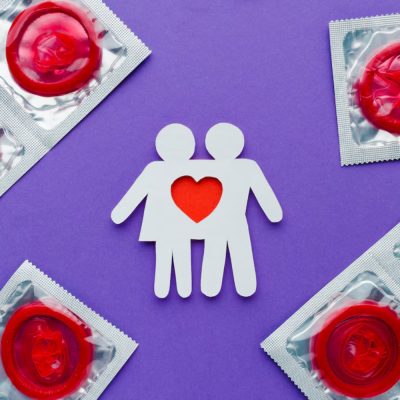Sexually Transmitted Diseases (STDs)
Sexually transmitted diseases (STDs) are infections that are spread through sexual contact or intercourse. These diseases can affect anyone who is sexually active, and they may have serious health consequences if left untreated. Common STDs include chlamydia, gonorrhoea, syphilis, genital warts, herpes, HIV/ AIDS and human papillomavirus (HPV). They can cause a range of symptoms, from mild discomfort to severe health complications if left untreated. Common symptoms include sores, unusual discharge, pain during urination, and itching, but some STDs may even be asymptomatic. Early diagnosis and effective treatment are crucial in managing STDs and preventing their spread. Regular testing and safe sexual practices are crucial for the prevention of STDs. At SkinAccess Clinics, we provide comprehensive care for individuals dealing with STDs, focusing on diagnosis, treatment, and prevention.

What are Sexually Transmitted Diseases / Infections (STDs / STIs)?
Sexually transmitted diseases (STDs) are infections caused by bacteria, viruses or parasites that are transmitted through sexual contact. This includes vaginal, anal and oral sex. Some STDs can also be spread through non-sexual means like blood transfusions or shared needles. It can even be spread to children from the mother (if she is suffering from an STD) during childbirth or breastfeeding.
There are various types of STDs, each with its own set of symptoms and complications. Common STDs include chlamydia, gonorrhea, syphilis, human papillomavirus (HPV), herpes, and HIV/AIDS. Early detection and treatment are essential to avoid complications and to prevent the spread of STDs to others.
Symptoms of Sexually Transmitted Diseases
The symptoms of STDs vary based on the specific infection. Regular screening is important as some infections may not cause noticeable symptoms, particularly in the early stages. However, some common symptoms of STDs include:
Genital Sores or Ulcers
These sores can be painful or painless and are commonly found on the genitals, anus or mouth. They could be a sign of herpes, syphilis or some other STD.
Unusual Discharge
Abnormal discharge from the penis, vagina or anus, often accompanied by an unusual smell could be indicative of chlamydia or gonorrhea.
Pain During Urination
Burning sensation or pain while urinating is a common symptom of chlamydia or gonorrhea.
Itching or Irritation
Itching in the genital area, anus or throat may be a symptom of herpes or trichomoniasis.
Rashes
Skin rashes, particularly on the palms of the hands or soles of the feet can be indicative of secondary syphilis.
Swollen Lymph Nodes
Swollen lymph nodes in the groin area is a sign of a possible infection.
Pain During Intercourse
This is a symptom of Pelvic Inflammatory Disease (PID), which is often caused by untreated STDs.
Fever & Fatigue
Generalized symptoms like fever, fatigue and malaise can occur with systemic infections like HIV or syphilis.
Causes of Sexually Transmitted Diseases
Sexually transmitted diseases are caused by various pathogens that may be transferred through sexual contact. These include:
Risk Factors of Sexually Transmitted Diseases
Engaging in unprotected sex, having multiple sexual partners, or having a history of STDs increases the risk of contracting a sexually transmitted disease. Other risk factors include using intravenous drugs and sharing needles, as well as having a partner who has an STD.

Diagnosis of Sexually Transmitted Diseases
A proper diagnosis of STDs involves a combination of physical examination, medical history and pathological tests.
Physical Examination
A dermatologist will examine the affected areas for signs of infection like rashes, sores or discharge.
Medical History
A sexual history of the patient is reviewed to assess the likelihood of contracting an STD. Also, if the patient may have used intravenous drugs or had a recent blood transfusion, they may be susceptible to an STD.
Laboratory Tests
Blood tests, urine tests and swab samples are taken from the genitals, anus or throat. These are commonly used to detect the presence of bacteria, viruses or parasites.
Management and Treatment of Sexually Transmitted Diseases
The care and treatment plans of sexually transmitted diseases depends on the specific infection. Early diagnosis and intervention are essential to prevent complications and the spread of STDs. SkinAccess Clinics offers expert diagnosis and a range of treatment options that best suit your needs.
➥ Antibiotic Treatment:
- Bacterial STDs: Antibiotics are used to treat bacterial infections like gonorrhea, chlamydia and syphilis. Early intervention can cure these infections and prevent further health issues.
- Follow-Up Testing: After completing the course of treatment, follow-up testing is recommended to ensure the infection has fully cleared.
➥ Antiviral Treatment:
- Viral STDs: While there is no cure for viral infections like herpes and HIV, antiviral medications help manage the symptoms and reduces the risk of transmission.
- Herpes: Antiviral medications help by reducing the frequency and severity of outbreaks.
- HIV: Antiretroviral Therapy (ART) helps in managing HIV infections, helping to maintain a low viral load and prevent progression to AIDS.
➥ Education & Counselling:
- Safe Sex Practices: Educating people on safe sex practices, including the use of protection (condoms, etc.) and regular screening, is important to prevent the spread of STDs.
- Partner Notification & Treatment: It is extremely important to inform sexual partners about the infection, so that they may be tested and treated if necessary.
➥ Vaccination:
- Human Papilloma Virus (HPV) Vaccine: Vaccination helps to protect against certain strains of the human papillomavirus (HPV) which can lead to genital warts, shingles and cervical cancer.
- Hepatitis B Vaccine: Vaccination can help prevent hepatitis B, a viral infection that can be transmitted sexually.
➥ Regular Screening:
Regular STD screening is important for sexually active individuals, particularly those with multiple partners. Early detection allows for prompt intervention and reduces the risk of complications.
Conclusion
Sexually transmitted diseases are a significant public health concern that required awareness, education and prompt medical intervention. At SkinAccess Clinics, we are dedicated to providing comprehensive care for individuals with STDs, offering confidential testing, effective treatment and preventive counselling. We understand the sensitive nature of such conditions and ensure to provide tailored care and treatment plans and the support that you may need.
If you suspect you have an STD or are at risk, we encourage you to schedule a consultation with our experienced team. Early detection and treatment are key to maintaining your health and preventing the spread of infections.
